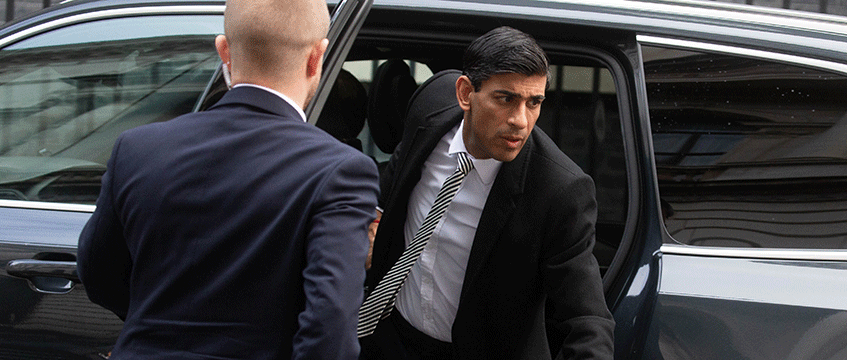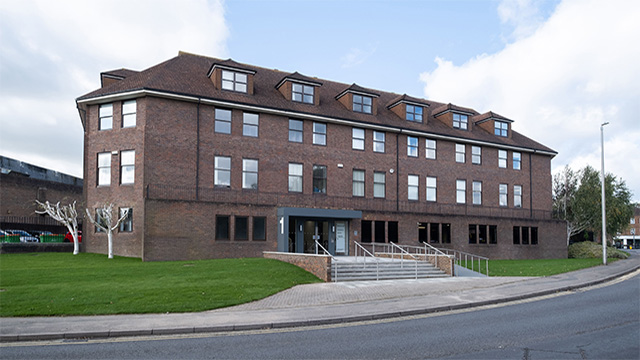Sunak III may prove to be most significant of chancellor’s trilogy
News
by
Bruce Dear and Paul Beausang
COMMENT This was the Babycham Budget. “Fizzy Rishi” cut duty on sparkling wines and perries. His broader aim was to set this winter’s political weather, boost the country’s morale by rolling out optimism’s 40-litre beer barrel, sustain the poll numbers and prepare for a post-Covid world.
The Budget was the third big fiscal event this year, following March’s Budget and the rise in national insurance last month. The third film in any trilogy is usually lamentable pants. Think The Godfather Part III or, even lower, Rambo III. But this Budget was helped by its prequels.
Sunak I and II did most of the dramatic tax rises. March’s Budget brought £31.5bn of corporate and personal taxes, and then last month came a further £18.2bn. This meant that Sunak III: The Age of Optimism could set a new tone and direction.
COMMENT This was the Babycham Budget. “Fizzy Rishi” cut duty on sparkling wines and perries. His broader aim was to set this winter’s political weather, boost the country’s morale by rolling out optimism’s 40-litre beer barrel, sustain the poll numbers and prepare for a post-Covid world.
The Budget was the third big fiscal event this year, following March’s Budget and the rise in national insurance last month. The third film in any trilogy is usually lamentable pants. Think The Godfather Part III or, even lower, Rambo III. But this Budget was helped by its prequels.
Sunak I and II did most of the dramatic tax rises. March’s Budget brought £31.5bn of corporate and personal taxes, and then last month came a further £18.2bn. This meant that Sunak III: The Age of Optimism could set a new tone and direction.
The chancellor was also helped by improved forecasts from the Office for Budget Responsibility. Its mauve book now predicts higher growth and lower scarring for UK plc. This fairy godmother gift gave the chancellor a £50bn windfall. He put half of it aside as a fillip to public finances and as a fighting fund. The other half he invested to ginger up the recovery and to start building a “high-skilled and innovative” post-Covid world.
Business rates revolution
Real estate people hoping to see this windfall ignite a business rates revolution were disappointed. Business rates remain a suffocating obsidian hippo squatting on the entrepreneurialism of British companies, but there is no easy way to replace a tax yielding £25bn a year. The problem is that the only alternatives to business rates are “difficult, minister”, as Sir Humphrey would say. For example, an online digital tax would be sensitive, tricky to implement and even harder to collect. All reasons why the government has promised only to “explore” it.
But Godot is odds on to arrive long before there is large-scale business rates reform, and the next business rates revaluation in 2023 already looms. Perhaps what is needed is an independent commission to look at the question of business rates and their alternatives, with the power to make binding recommendations. That way, the issue could be taken out of party politics.
Levelling up advantages
The “levelling up” agenda is key to real estate. Michael Gove’s team has suggested it should use targeted public money to bring in the private sector, improve public services and infrastructure, and empower local leaders and people to transform their own communities.
For the Conservatives, levelling up has a number of advantages over a mass national programme to reduce inequality. It costs less and shows immediately tangible results in relatable numbers. Levelling up also works with the free market, focusing on equality of opportunity, not outcome, and maps extremely well onto the UK’s electoral and regional geography (especially the red wall, and areas that aren’t London).
In his Budget speech, Sunak said that the location of your birth (not your social class) “decides too much of your future”. The focus of levelling-up policy, then, as seen in the £1.7bn he allocated to 100 local infrastructure projects, is regional and not class disadvantage.
Puppies and politics
The £1.8bn for building new homes on brownfield land in England, “to help regenerate and level up the country”, is welcome. No one opposes building housing on brownfield land; it would be like opposing puppies. But this is only a baby step, not big enough alone to have an impact on the UK’s housing crisis. Time will tell if Sunak’s wider housing initiatives will reduce our housing shortage.
Some commentators and Tory Party grandees have called this a “New Labour” Budget, presaging a tax-and-spend Conservatism. But all of the Conservative prime ministers before Margaret Thatcher (perhaps especially Harold Macmillan) would recognise this Budget – because it could have been one of their own. It is not un-Conservative to spend when you must and cut taxes when you can. The Macmillan and Heseltine traditions run deep in the party’s veins, alongside those of Lawson and Thatcher.
So we should believe Sunak when he says he doesn’t like taxing and spending, but knows it must be done – and when he tells the 1922 Committee, as he did after the Budget, “It is my view that, going forward, every marginal pound we spend should be put into lowering people’s taxes, not spending.” Macmillan when you must, Thatcher when you can.
This Budget may prove the most significant of the chancellor’s three big set pieces this year. Sometime in 2024 (or 2023 if Boris Johnson calls a General Election early) we will know if it worked.
Bruce Dear is head of London real estate and Paul Beausang is head of real estate tax at Eversheds Sutherland
Photo by Mark Thomas/Shutterstock











